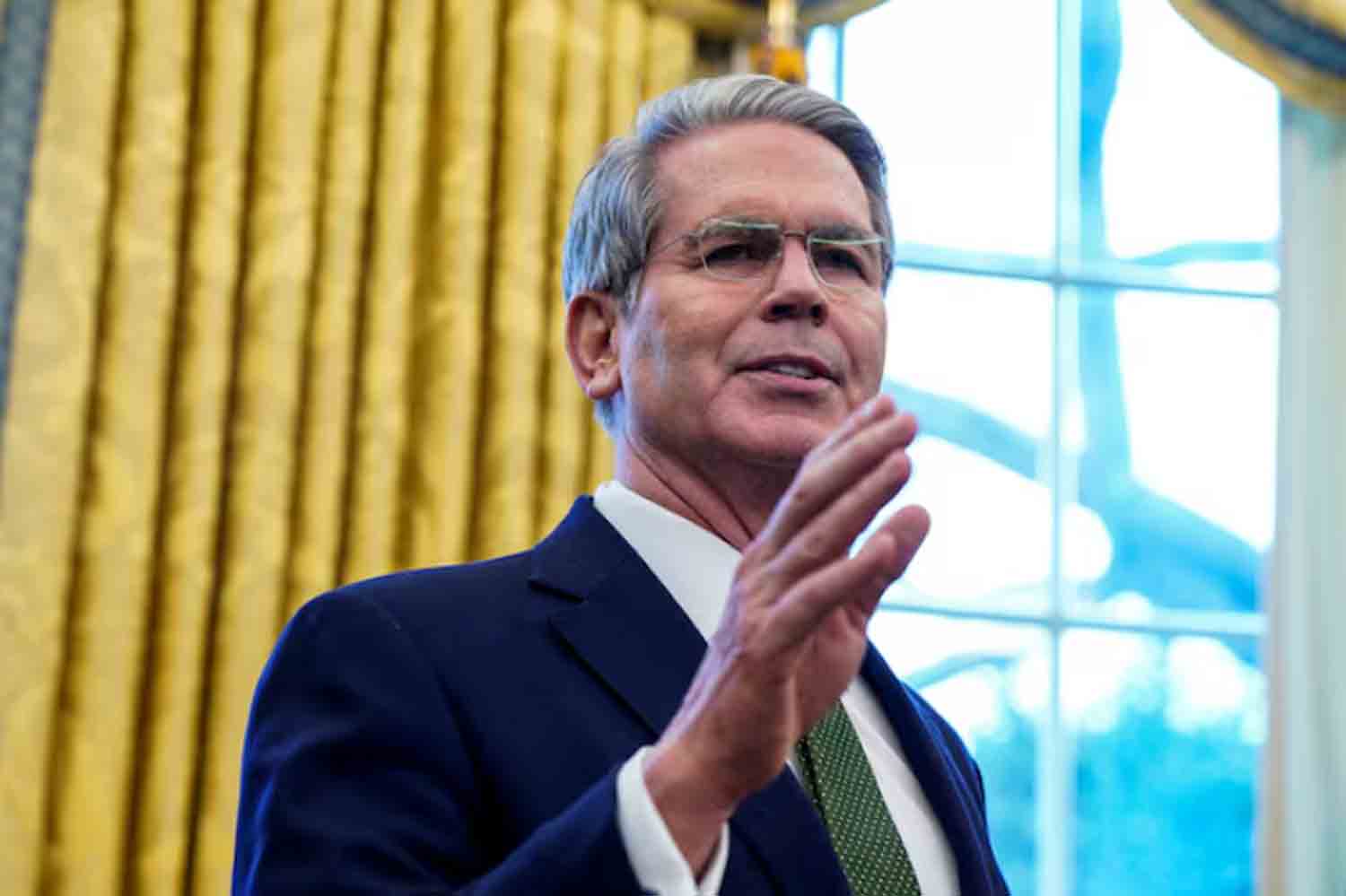Russia may find some relief from U.S. sanctions if it demonstrates a genuine willingness to negotiate an end to the conflict in Ukraine, U.S. Treasury Secretary Scott Bessent stated in an interview with Bloomberg Television on Thursday.
Bessent also mentioned that he plans to engage with his Chinese counterpart on Friday, encouraging China to shift its economic focus towards greater consumer spending. When asked about the potential for the U.S. to either escalate or ease sanctions on Russia based on the progress of negotiations regarding the Ukraine war, Bessent remarked, “That’d be a very good characterization.”
He further noted, “The president is dedicated to resolving this conflict swiftly.” President Donald Trump has indicated that he might meet with Russian President Vladimir Putin this month to discuss ways to conclude the war.
While Bessent did not specify when a Trump-Putin meeting might occur, he confirmed that he would not participate in the upcoming G20 finance ministers and central bank governors meeting in South Africa “due to some domestic considerations.” During his confirmation hearing in the U.S. Senate, Bessent expressed his willingness to support an increase in U.S. sanctions on Russian energy, particularly targeting major oil companies, should Trump request it.
The Treasury Secretary criticized Ukrainian President Volodymyr Zelenskiy for not finalizing a $500 billion agreement to supply critical minerals to the U.S. and for escalating tensions with Trump. The U.S. president has labeled Zelenskiy a “dictator.” Bessent stated that Zelenskiy had assured him he would sign the minerals deal in Munich, which he has not done. He characterized the minerals supply agreement as part of a broader strategy to align Ukraine more closely with the U.S.
On Wednesday, Zelenskiy rejected U.S. demands for Ukraine to repay Washington with mineral resources equivalent to wartime aid, arguing that the U.S. had not provided nearly that amount and had not offered specific security guarantees in the proposed agreement.
CHINA REBALANCING ARGUMENT
During an introductory call with his Chinese counterpart, Bessent expressed his intention to advocate for economic reforms that would promote greater domestic consumption. The Chinese foreign ministry announced that Vice Premier He Lifeng would engage in a video call with Bessent on Friday, a discussion initiated by the U.S. to address significant economic matters between the two nations. Bessent’s predecessor, Janet Yellen, frequently communicated and met with He.
The notion that China should decrease its reliance on exports for economic growth has been a recurring theme voiced by Yellen and several other U.S. Treasury secretaries over the years. Nevertheless, China has persisted with its investment and export-driven strategies.
“The Chinese need to adjust their economic model to prioritize consumption, as they are currently favoring the business sector at the expense of the consumer,” Bessent remarked.
DEBT ISSUANCE UNCHANGED
Bessent indicated that any potential increase in the proportion of longer-term Treasuries in government debt issuance is not imminent, citing challenges such as the Federal Reserve’s quantitative tightening measures. During Trump’s election campaign, Bessent criticized Yellen’s preference for issuing shorter-term bills, which generally offer lower interest rates, arguing that this approach was designed to stimulate short-term growth, a claim Yellen refuted.
“That transition is still a long way off, and we will have to see how the market responds,” Bessent stated when questioned about the possibility of moving towards longer-term issuance. “It will depend on the path we take.” He also dismissed rumors regarding the U.S. government potentially revaluing its gold reserves to alleviate borrowing requirements or to finance the establishment of a sovereign wealth fund, as reported.
Discover more from Defence Talks | Defense News Hub, Military Updates, Security Insights
Subscribe to get the latest posts sent to your email.





